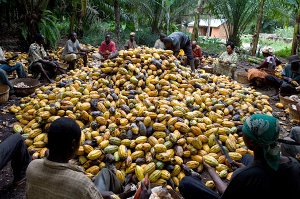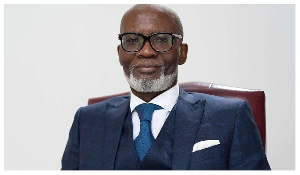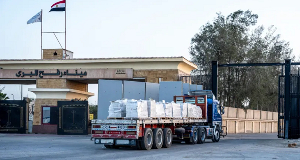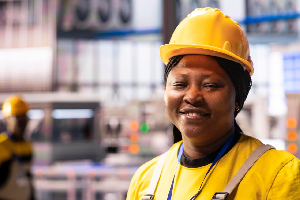When Dr. Nkrumah with his CPP needed financial capital to support his socialist experiment, he made a bold move and imposed tariffs on cocoa farmers. This brought about protests, which resulted in the birth of the National Liberation Movement (NLM). But successive governments have continued to rely upon this unfair burden carried by a single industry of entrepreneurs to support the whole country. The cocoa farmers have born the unfair tariff burden for decades. Therefore, what is wrong with asking about 250,000 vehicle owners (estimated) whose business lifeblood is gasoline to make a mandatory purchase of a one-time $200 security equity share in Tema Oil Refinery (TOR) and reduce the pressure some of the local banks? Each purchase, with the payment spread out for a specified period, will buy out (exchange) 400 billion Cedis or $50 million of government equity. This will be a good example of partial divestiture; the people indeed take up ownership. And the Stock Market is available for those who need to liquidate in the future. Then, “The $64,000 Question” is – how can a society with a “hoarding mentality” that controls huge, locked up, accumulated, capital and natural resources complain about a lack of financial support to her own basic human needs to exist, such as water? Understanding!
Secondly, why not ask the present and future 100,000 urban home and business owners who depend on the Ghana Water and Sewer Corporation (GWSC) to participate in a mandatory purchase of $500 of Security in GWSC? With each payment spread out for a specified period, $50 million of government equity will be bought out. After all, a lot of the cocoa farmers, with part of their created capital, via high tariffs, were used to develop the urban water infrastructure, and they do not even have access to the urban water. Our misdirected self governance practices with the “hoarding mentality” underpinning are one of the factors that led us to become a HIPC member. Unless the leadership becomes enlightened on the transient nature of capital and sets up fiscal policies accordingly, then the President’s characterization of the private sector’s, “the engine of economic growth” will have no spark plugs to ignite the engine.
The irony of Ghana is that the Ashanti Goldfields Corporation (AGC), which occupies less than 50 square miles of Ghana’s surface area, can raise $50 million in the world market at a reasonable time, but the Ghana Government is unable to do the same. There has to be a reason. No matter how many frequent flying miles the leadership logs, they will never match AGC until they learn to understand the capital that they are chasing. When they do, they will stay home and encourage the private businesses and entrepreneurs to pick up the slack. The investment Forum and Trade Shows outside of Ghana are essential and beneficial when the indigenous business entrepreneurs are the focus and the state officials undertaking supportive role to give them legitimacy.
Government, being the engine of the economy, as perceived by Dr. Nkrumah, is a thing of the past.
Kwame Nkrumah’s Builders Brigade could not replace entrepreneur farmers, state-owned factories could not stand without subsidies, state banks collapse in a market economic arena and the Bank of Ghana has taken up her legitimate independent purpose. The proper role of the government is to act as a catalyst to the economy. Dr. Nkrumah and his CPP initiated many bold ideas but Dr. Nkrumah and his disciples destroyed the Ghanaian entrepreneurship to the core of which this generation is embarked upon rebuilding
















